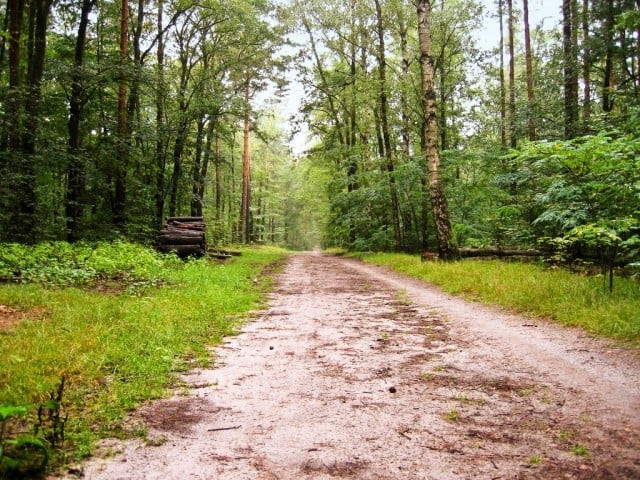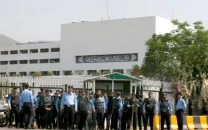FATA, AJK and G-B: Climate change ministry seeks ambit over forests
Ministry believes move is necessary to protect eroding forests and increase tree cover

Ministry believes move is necessary to protect eroding forests and increase tree cover. PHOTO: FILE
The Ministry of Climate Change has formally approached the Prime Minister’s Office regarding the transfer of administrative control of forest sectors in Azad Jammu and Kashmir (AJK), Gilgit-Baltistan (G-B) and the Federally Administered Tribal Areas (Fata).
The ministry believes the transfer is necessary to enact measures to protect eroding forests and increase tree cover in these territories.
The ministry’s forest wing has recently moved a summary to the premier in where it requests for the Inspector General of Forests to be given a role in the decision-making process and technical matters related to forest sectors in AJK, G-B and FATA.
“The legal provision exists in rules and laws. G-B Judicial Council’s decision of April 6, 2011 clearly provides the federal government a role in forestry,” Forests Assistant Inspector-General Aurangzeb Awan told The Express Tribune.
In AJK, the state government currently protects and manages forests in its jurisdiction. In G-B, forestry is managed by the G-B Council while in Fata, the centre is responsible for forests through the FATA Secretariat.
The functions of the government pertaining to forestry are limited to national planning, economic coordination, inter-provincial coordination, and matters incidental or ancillary thereof.
In G-B, the continuous cutting of banned tree species including pine, kail and deodar, has eroded more than 50 per cent of forested areas over the last 20 years. G-B encompasses an area of 7,040,000 hectares, with forest cover estimated at 950,000 hectares, or 13.5 per cent, of its total area.
“Forest area in G-B has fallen to 295,000 from 640,000 hectares in the last 20 years due to callous cutting of trees and illegal transportation down-country,” Climate Change Division Forest Wing Deputy Inspector-General Dr Shahzad Jehangir told The Express Tribune.
According to estimates by the AJK Forest Department, illegal logging and smuggling has felled 500,000 acres of forest area from the territory, with around 5,000 acres deforested every year. In AJK, the area under the forest department’s control extends over 56,700 square kilometres, or 42.6 per cent of total land. Growing stock of commercial forest is 34.5 million cubic meters, with a potential annual yield of 0.2 million cubic meters.
AJK’s rural population is 88 per cent, causing a large dependence on forests for daily basic needs and livelihood. Around 89 per cent of households use wood for cooking and space heating. Over 94 per cent of the rural inhabitants and over 50 per cent of the urban population use forests for grazing animals; an overwhelming majority is either partially or fully dependant on forests in this regard.
According to AJK forest department officials, the forest regeneration scheme of 1970 has had a success rate of 57 per cent, with conifers, deodar and pine trees taking between 100 and 200 years to grow back fully. Mineral mining, road construction and other development related activities are the main reasons for deforestation in AJK, said an official.
After the 18th Amendment, the care of forest sectors were devolved to the provinces, but this constitutional amendment is not applicable to AJK, G-B and Fata. This makes it possible for the centre to intervene, with the premier able to give directives in any subject including forest management and jurisdiction.
Published in The Express Tribune, August 9th, 2015.


















COMMENTS
Comments are moderated and generally will be posted if they are on-topic and not abusive.
For more information, please see our Comments FAQ